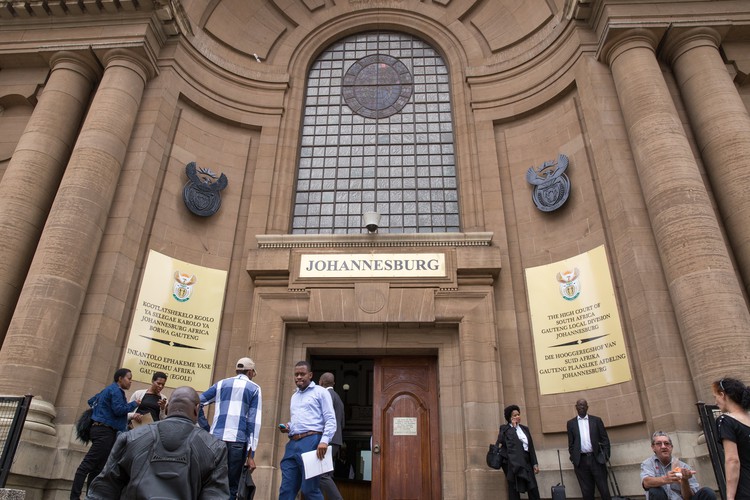Asylum seeker appeals hospital decision to stop dialysis
Alem Bazabe Ereselo was deemed ineligible for a kidney transplant because of her refugee status

On 11 October the Johannesburg High Court handed down a judgment upholding a decision by Helen Joseph Hospital to discontinue life-saving dialysis treatment for an asylum seeker. Lawyers for the asylum seeker are preparing an appeal.
Alem Bazabe Ereselo arrived in South Africa in 2010, fleeing political persecution in Ethiopia. She applied for asylum. On 7 July 2010, she was informed that her application was rejected. She appealed to the Refugee Appeal Board, which to date has not made a decision.
In January 2019, Ereselo was admitted to Helen Joseph Hospital, presenting symptoms of kidney failure. Doctors performed tests to determine the possibility of her recovery. An agreement was signed for her to receive temporary dialysis treatment while medical investigations were concluded and assessment of her eligibility for a kidney replacement programme were conducted.
Soon after, the hospital informed her that she needed long-term dialysis until a transplant organ became available. But the hospital told her that she was ineligible for a transplant because she is an asylum seeker. Her dialysis would therefore be discontinued.
The hospital relied on the Department of Health policy and Section 61(3) of the National Health Act, which restricts transplant services to South African citizens, permanent residents and recognised refugees.
Ereselo approached the high court on an urgent basis for relief.
High Court
Ereselo argued that the restrictive policy and legislation violated her rights to dignity, equality and healthcare.
The hospital argued that the decision to discontinue treatment was based on its limited resources.
The High Court agreed with the hospital, dismissing Ereselo’s claim. The court based its decision on the 1997 Constitutional Court judgment of Soobramoney v Minister of Health. Soobramoney was a South African citizen who tried to interdict a state hospital from discontinuing his dialysis treatment. The court concluded that given the state’s limited resources, decisions of this nature must be holistic, focusing on the larger needs of society rather than those of a particular person. Accordingly, Soobramoney’s claim was dismissed. He died soon afterwards.
The Appeal
Ereselo’s lawyers intend to appeal the decision, arguing against the High Court’s reliance on the Soobramoney judgment. On various public platforms, they have argued that the matter at hand is distinguishable from Soobramoney on a number of grounds.
Soobramoney was ineligible for a kidney transplant on medical grounds. He suffered from ischaemic heart disease and cerebrovascular disease, both transplant disqualifiers, because they significantly reduce the probability of success. This is why he was denied the limited number of places available for dialysis.
In Ereselo’s case, her ineligibility was based entirely on her legal status. The hospital letter giving the reasons for her ineligibility stated: “You are not a South African citizen and you do not possess verified documents pertaining to refugee status or permanent citizenship awarded.”
Ereselo’s lawyers also argue that the state has a duty to progressively realise the right to healthcare and it is unacceptable that little progress has been made in this regard since the Soobramoney judgement, which was 22 years ago.
The appeal will raise topical questions for South African jurisprudence on the rights of asylum seekers. The court will likely be asked to determine the constitutionality of discontinuing treatment on the grounds of one’s legal status, rather than on medical grounds.
Also, the court may be asked to determine what constitutes emergency healthcare. Section 27(3) of the Constitution guarantees everyone the right to emergency healthcare. In Soobramoney, the court concluded that in the circumstances, dialysis does not constitute emergency healthcare. The court highlighted that the nature of treatment sought by Soobramoney, would be an “ongoing state of affairs” resulting from an incurable condition. In Ereselo’s case the treatment would not be ongoing. It would last only until she received a kidney transplant. So her treatment may fall into the definition of emergency healthcare, distinguishable from Soobramoney.
Dr Modisane, Deputy Director General in the Department of Health Gauteng, made a compelling argument in the High Court. He stated that appropriate relief would be to place Ereselo on a waiting list with other patients who have citizenship and permanent residence. To grant relief compelling the hospital to treat her ahead of these individuals would be untenable.
Ereselo’s predicament also illustrates the devastating effect of South Africa’s poorly functioning asylum system. Had Ereselo’s application been finalised timeously, the issue may have been avoided.
Next: No lawyers and no bail: Refugees on trial for trespassing
Previous: Four years after Masiphumele fire, survivors still live in temporary one-room shacks
© 2019 GroundUp.
This article is licensed under a Creative Commons Attribution-NoDerivatives 4.0 International License.
You may republish this article, so long as you credit the authors and GroundUp, and do not change the text. Please include a link back to the original article.


